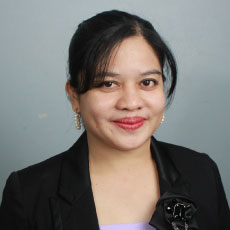- +1 (587) 325-0234
- edinnovate@iferp.net
- Tokyo, Japan
PROGRAMME OVERVIEW
Conference Schedule
| Time | Activity |
|---|---|
| 08:30 AM – 09:00 AM | Registration Desk Opens |
| 09:00 AM – 09:10 AM | Introduction by Moderator |
| 09:10 AM – 09:40 AM | Speech by Workshop Speaker (To Be Announced) |
| 09:40 AM – 10:10 AM | Speech by Workshop Speaker (To Be Announced) |
| 10:10 AM – 10:40 AM | Workshop Session — Speaker: (To Be Announced) |
| 10:40 AM – 10:55 AM | Networking Break |
| 10:55 AM – 11:40 AM | Inaugural Ceremony |
| 11:40 AM – 12:00 PM | Speech by Keynote Speaker (To Be Announced) |
| 12:00 PM – 12:30 PM | Speech by Session Speaker (To Be Announced) |
| 12:30 PM – 12:40 PM | Presentation by Guest Speaker (To Be Announced) |
| 12:40 PM – 01:15 PM | Lunch Break |
| 01:15 PM – 04:27 PM | Technical Session 1 |
| 04:27 PM – 04:45 PM | Networking Break |
| 04:45 PM – 04:50 PM | Valedictory Function |
| 04:50 PM – 04:55 PM | Vote of Thanks |
| Time | Activity |
|---|---|
| 10:10 AM – 10:20 AM | Introduction by Moderator |
| 10:20 AM – 10:40 AM | Keynote Speech (To Be Announced) |
| 10:40 AM – 11:00 AM | Keynote Speech (To Be Announced) |
| 11:00 AM – 11:20 AM | Session Speaker Address (To Be Announced) |
| 11:20 AM – 11:40 AM | Plenary Keynote Address (To Be Announced) |
| 11:40 AM – 11:50 AM | Presentation by IFERP Representative |
| 11:50 AM – 12:05 PM | Networking Break |
| 12:05 PM – 12:25 PM | Session Speaker Address (To Be Announced) |
| 12:25 PM – 12:45 PM | Keynote Speech (To Be Announced) |
| 12:45 PM – 01:05 PM | Session Speaker Address (To Be Announced) |
| 01:05 PM – 01:25 PM | Session Speaker Address (To Be Announced) |
| 01:25 PM – 01:45 PM | Session Speaker Address (To Be Announced) |
| 01:45 PM – 02:05 PM | Session Speaker Address (To Be Announced) |
| 02:05 PM – 05:10 PM | Technical Session 1 |
| 05:10 PM – 05:25 PM | Networking Break |
| 05:25 PM – 05:30 PM | Valedictory Function |
| 05:30 PM – 05:35 PM | Vote of Thanks |

